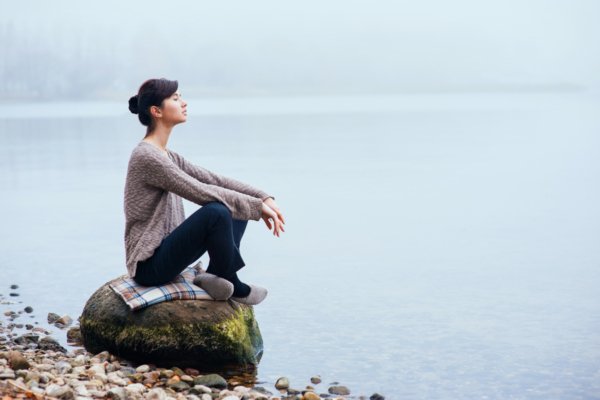Traveling can often bring about anxieties for people due to delays or changes in plans. For individuals with “high-functioning anxiety,” this can present a significant challenge. Experts suggest that by examining four travel habits, you can uncover hidden “high-functioning anxiety” that you may not even be aware of.
According to a report by the Huffington Post, “high-functioning anxiety” is not an official medical diagnosis but rather a term used to describe individuals who exhibit symptoms of anxiety such as racing thoughts, nervousness, or constant worrying, yet may mask these symptoms from others.
This type of anxiety differs from Generalized Anxiety Disorder, as those with these symptoms often mask them in public settings, making it less noticeable to others.
American clinical psychologist Scott Lyons noted that individuals with “high-functioning anxiety” typically excel in achievements, perform well in their work or in public settings, but privately struggle with anxiety. It is a pervasive feeling that things are not quite right, making it difficult to fully relax or rest.
Lyons stated, “The unpredictable nature of travel can exacerbate anxiety symptoms, making it challenging for individuals to relax and enjoy the journey.”
So, how can you identify if you have this issue, especially when you are on vacation? Experts say that by examining the following four travel habits, you can uncover potential hidden “high-functioning anxiety”:
Individuals with “high-functioning anxiety” may spend excessive time planning their trips, researching destinations, accommodations, and activities.
Lyons explained, “This extensive planning can help them feel more in control and prepared for any potential challenges that may arise.”
Michael Louwers, Deputy Director of Reset Medical and Wellness Center in Ohio, noted that adequate preparation is usually not a bad thing when it comes to travel. However, unseen stressors such as itinerary delays, crowded places, or unpredictable weather can easily pose challenges, especially when traveling with family.
He mentioned that for individuals with “high-functioning anxiety,” these factors of travel can become particularly difficult to handle.
Lyons pointed out that individuals with “high-functioning anxiety” may prefer reliable transportation modes even though they know they cannot control all traffic factors. For example, they may opt for expensive shared rides to ensure punctuality rather than taking public buses.
Lyons added, “Individuals with ‘high-functioning anxiety’ may arrive at the airport too early to ensure they have enough time to address any challenges, delays, or long queues, minimizing the risk of missing their flight.”
Those with “high-functioning anxiety” often strive for perfection, which can turn simple trips into daunting tasks. They may also overthink during the planning process.
Louwers mentioned that this leads them to want every trip to be flawless and consider every possible scenario. This often results in overpacking or arriving at the airport excessively early.
Even individuals without “high-functioning anxiety” may tend to overpack their luggage. However, those with this condition may feel the need to bring extra items to prepare for any possible scenarios they can imagine.
Lyons gave an example, “Such as weather changes affecting their plans, or clothes getting damaged during transit.”
If you have “high-functioning anxiety,” Lyons recommended seeking the advice of a mental health professional to develop strategies tailored to your specific needs.
Moreover, several methods can be adopted to reduce anxiety while traveling. The first is setting realistic expectations.
Louwers stated, “Embracing perfection is an unattainable concept, and unexpected events may lead to some of the most memorable experiences.”
The second method is to limit preparation time, which helps prevent overthinking and excessive worry. To achieve this, set time limits for planning and packing.
Louwers suggested creating checklists for packing, booking accommodations, and planning activities. Focus on the essentials rather than getting caught up in details.
The third method is practicing mindfulness or breathing techniques, leaving laptops and phones aside. Louwers said, “Deep breathing techniques can help you stay grounded, living in the present moment.”

